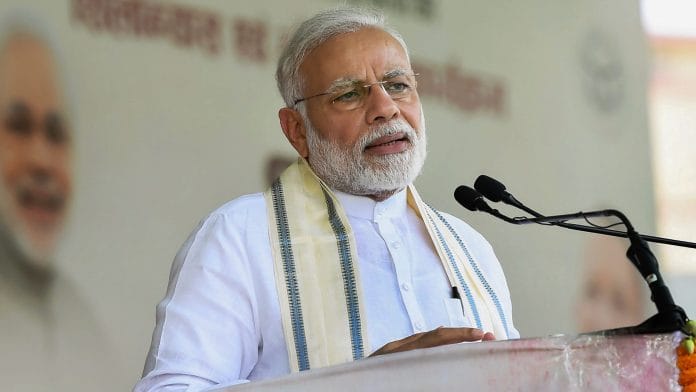Modi govt needs money to appease voters but it shouldn’t resort to deceptive transactions involving listed public sector firms.
India’s government is caught in a bind. It needs money to appease voters ahead of a tighter-than-expected reelection campaign. But it’s also set praiseworthy deficit targets for itself that it’s already breached once. So it could use new ways to finance more spending.
Such pressure often leads to bad decisions. This week, a senior official suggested that one solution might be to force big public-sector companies to buy back shares. In particular, the boards of Indian Oil Corp. Ltd., the Oil & Natural Gas Corp. Ltd., Oil India Ltd. and others might have to buy back shares worth about $2.7 billion.
It’s hard to see this as anything but the government squeezing these companies and riding roughshod over the rights of their minority shareholders. These aren’t firms that don’t know what to do with their money. ONGC, for example, needs cash for exploration. Yet its once sizeable cash reserves declined by 90 percent in the year to June 2018, according to Bloomberg, in part because politicians ordered the company to buy out the state’s stake in the refining company Hindustan Petroleum Corp. Ltd. and to shell out a record dividend.
Doing so will eat up about 42 percent of ONGC’s remaining liquidity. The oil behemoth will have to ration funds for exploration as a consequence, even as India continues to import over 80 percent of its oil — a constant source of uncertainty for its economy.
This isn’t the only way that the government is leaning on oil companies. Responding to noisy protests from opposition politicians about high fuel taxes, it recently ordered companies to reduce the price at which they sell diesel and petrol to consumers. The companies will have to swallow the losses they make as a consequence and minority shareholders will have to lump it.
This is a reminder that in India, privatization doesn’t necessarily mean what it does in the rest of the world. Successive governments have preferred the term “disinvestment” — meaning the reduction of the state’s stake in big, strategic companies. The idea is that listing public-sector companies on the markets and drawing down the government’s stake will gradually help inculcate a bit of market discipline into their operations. There’s little evidence to support such faith, however: Instead, the government continues to view public-sector companies as convenient piggy banks for populist spending rather than as normal corporate entities that they just happen to own.
It’s increasingly hard to argue that the Indian government is a responsible steward of other people’s money. On this occasion, it’s ignoring minority shareholders’ interests. Over the past few months, it’s demonstrated that it can be equally irresponsible when it comes to protecting the interests of the millions of Indians who have entrusted their money to giant, state-run insurance companies. The Life Insurance Corp. of India, for example, has been told to buy a state-run bank that has the highest ratio of non-performing assets in the business — a massive 28 percent. There’s no logical commercial reason for this; the shares would be a bad buy even if they were free. The message to anyone investing in a public-sector company or fund in India is loud and clear: It’s not your money, but ours.
The implications for India’s macro-economy are dire. In the bigger public-sector companies, cash reserves would have eventually been used for investment. That would in turn have helped strengthen India’s fragile investment revival and perhaps ensure that growth in GDP was less dependent on government spending and household credit.
Instead, share buybacks take money out of the markets and put it into the state’s hands. The government would argue that it’s being responsible: Meeting its fiscal deficit target should take precedence. But the idea behind deficit constraints is to ensure that government spending doesn’t crowd out more productive corporate investment. What’s the point of meeting those targets by reducing the amount of investible funds in the economy?
If it truly wants to be responsible, the government should do what it’s pledged and live within its means. There are only two ways to reduce the deficit: Cut spending, or raise taxes. Instead of deceptive transactions involving listed public-sector companies, the government should try one or both of those instead. – Bloomberg







Not a good steward of the economy or of the public purse.